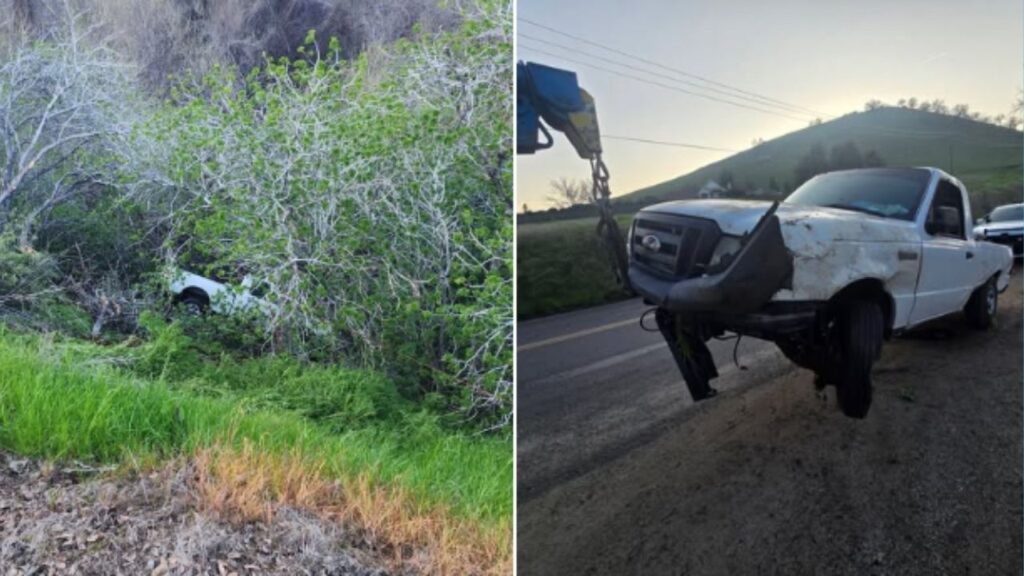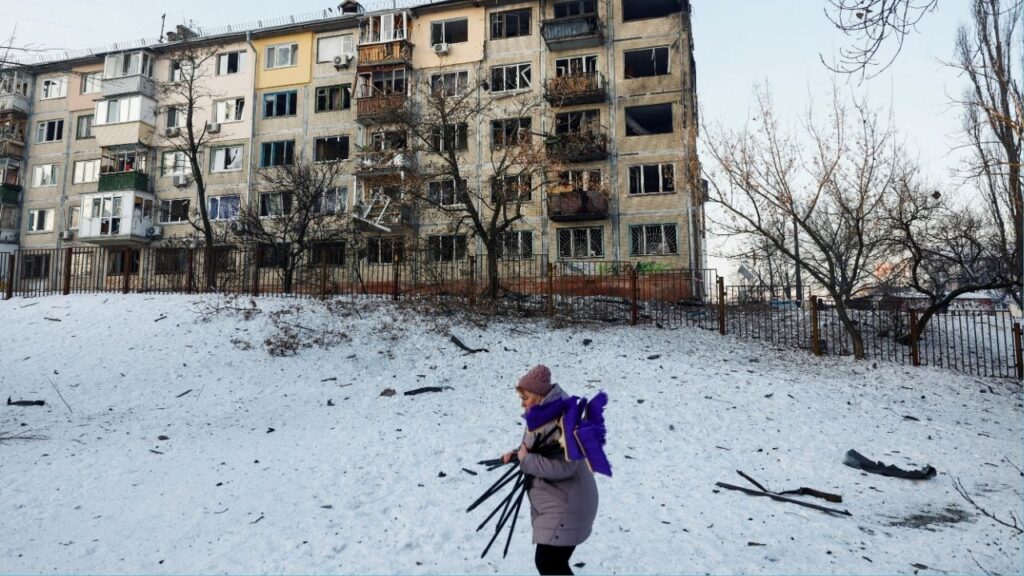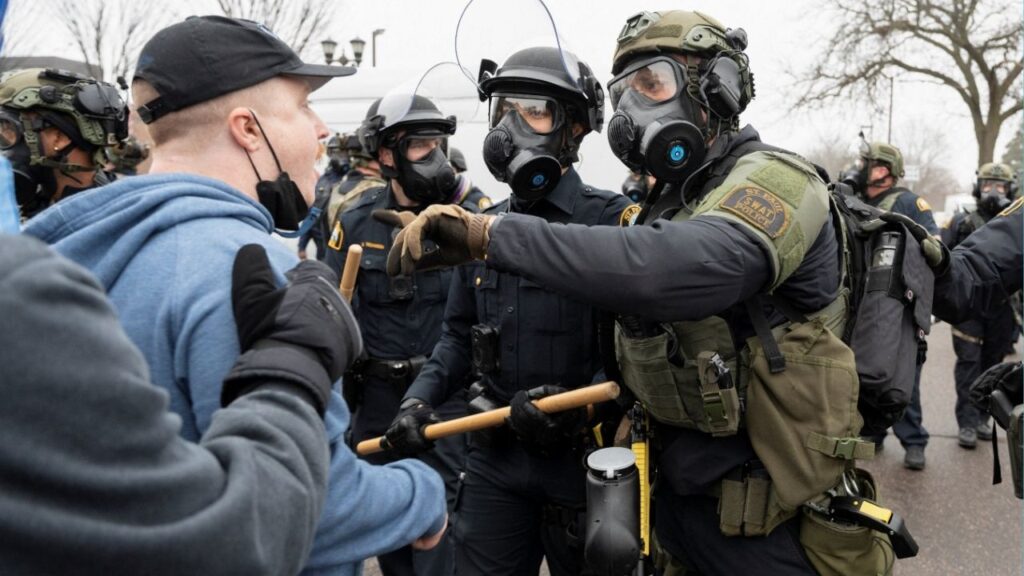Secretary of Agriculture Brooke Rollins listens as President Donald Trump takes questions from reporters in the Oval Office of the White House in Washington, May 8, 2025. President Trump’s decision to pause most raids targeting farms and hospitality workers took many inside the White House by surprise. It came after intensive lobbying by his agriculture secretary. (Eric Lee/The New York Times/File)

- Secretary of Agriculture Brooke Rollins convinces President Trump to end ICE raids at farms.
- It remains to be seen how effective the order will be and whether Trump will stick with his decision.
- The scope of Trump’s immigration crackdown has unsettled some Republicans.
Share
|
Getting your Trinity Audio player ready...
|
WASHINGTON — Last Wednesday morning, President Donald Trump took a call from Brooke Rollins, his secretary of agriculture, who relayed a growing sense of alarm from the heartland.
Farmers and agriculture groups, she said, were increasingly uneasy about his immigration crackdown. Federal agents had begun to aggressively target worksites in recent weeks, with the goal of sharply bolstering the number of arrests and deportations of immigrants living in the country illegally.
Farmers rely on immigrants to work long hours, Rollins said. She told the president that farm groups had been warning her that their employees would stop showing up to work out of fear, potentially crippling the agricultural industry.
She wasn’t the first person to try to get this message through to the president, nor was it the first time she had spoken to him about it. But the president was persuaded.
The next morning, he posted a message on his social media platform, Truth Social, that took an uncharacteristically softer tone toward the very immigrants he has spent much of his political career demonizing. Immigrants in the farming and hospitality industries are “very good, long time workers,” he said. “Changes are coming.”
Some influential Trump donors who learned about the post began reaching out to people in the White House, urging Trump to include the restaurant sector in any directive to spare workers living in the country illegally from enforcement.
West Wing Caught Off Guard
Inside the West Wing, top White House officials were caught off guard — and furious at Rollins. Many of Trump’s top aides, particularly Stephen Miller, his deputy chief of staff, have urged a hard-line approach, targeting all immigrants without legal status to fulfill the president’s promise of the biggest deportation campaign in American history.
But the decision had been made. Later on Thursday, a senior official with Immigration and Customs Enforcement, Tatum King, sent an email to regional leaders at the agency informing them of new guidance. Agents were to “hold on all worksite enforcement investigations/operations on agriculture (including aquaculture and meat packing plants), restaurants and operating hotels.”
It remains to be seen how effective the order will be and whether Trump will stick with his decision. Raids at other worksites, like the one in Los Angeles’ garment industry that led to mass protests, are still allowed. On Friday, the day after Trump issued the new guidance, farmworkers were being rounded up in the fields of Oxnard, 50 miles north of Los Angeles, according to advocates.
But the president’s decision to shield farmers and the hospitality industry — a business he knows well from his years as an owner of luxury hotels — reveals the tension between his deportation efforts and concerns about maintaining crucial support in his political coalition.
This account of Trump’s retreat is based on interviews with 11 people, most of whom spoke on the condition of anonymity to describe private discussions.
“President Trump has always stood up for our farmers, who were a major part of his November victory, by working to negotiate fairer trade deals and cut red tape,” Anna Kelly, a White House spokesperson, said in a statement. “He will continue to strengthen our agricultural industry and boost exports while keeping his promise to enforce our immigration laws and remove the millions of unvetted illegals who flooded into the United States under Joe Biden.”

‘Let’s Go After the Criminals’
The scope of Trump’s immigration crackdown has unsettled some Republicans as the raids on farms began disrupting operations. More than 40% of the nation’s crop workers have no legal immigration status, the Agriculture Department has estimated.
On Tuesday, federal agents started fanning out across California’s vast agricultural area, from along the coast to the Central Valley. The raids spread chaos in Oxnard, which grows much of the nation’s strawberries, as well as in Kern and Tulare counties, where vegetables, grapes and delicate fruit, like peaches, are starting to be harvested.
Growers reported that 30% to 60% of workers stopped reporting to the fields in the days after the raids.
Agricultural associations in California, Idaho and elsewhere, whose members are typically Republicans, have been bombarding their Senate and congressional offices to voice concerns.
“We all need to focus on convicted criminal aliens,” Rep. Tony Gonzalez, R-Texas, said on CNN last week. “If we focus there and we’re not going after the milker of cows who’s, you know, in 103-degree weather, going after that guy and we’re going after the convicted criminal, I think we’re on the right path.”
ICE Raids at Farms Are ‘Just Wrong’
Rep. Glenn Thompson, R-Pa., the chair of the House Agriculture Committee, said ICE raids at farms were “just wrong.”
“They need to knock it off,” he told reporters last week. “Let’s go after the criminals and give us time to put processes in place so we don’t disrupt the food supply chain.”
During an agriculture committee hearing Wednesday, he pressed Rollins about what the administration was doing to ensure ICE raids were not “impacting food security.”
Rollins said she had spoken about the issue to Trump on Tuesday in the Oval Office and Wednesday morning.
“This president’s commitment to ensuring that all laws are followed remains paramount,” Rollins said. But she added that Trump understood “the significant challenges” in finding the necessary farm labor.
Protecting Farmers
Trump has often made policy exceptions for farmers, a key base of support. In his first term, he provided farmers with billions of dollars in aid amid a trade war with China. He deemed agricultural laborers to be essential workers during the coronavirus pandemic. He even allowed their employers to provide them with letters to show law enforcement so they would not be deported.
In his second term, Trump has weighed a new round of emergency relief to farmers this year because of Trump’s tariffs.
“It’s entirely predictable that Trump would backpedal on enforcement in the sectors he cares about — hospitality, where his own businesses operate, and agriculture, where his voters are over represented,” said Wayne Cornelius, a professor emeritus at the University of California, San Diego, who researched immigrant labor.
This article originally appeared in The New York Times.
By Tyler Pager, Miriam Jordan, Hamed Aleaziz and Zolan Kanno-Youngs/Eric Lee and Alex Welsh
c.2025 The New York Times Company
RELATED TOPICS:
Categories

US Pushes to Widen Talks With Iran Beyond Nuclear Issue

Congress Targets Housing Crisis as Solutions Elude Trump

Driver Walks Away Unharmed After Solo Crash East of Porterville
















